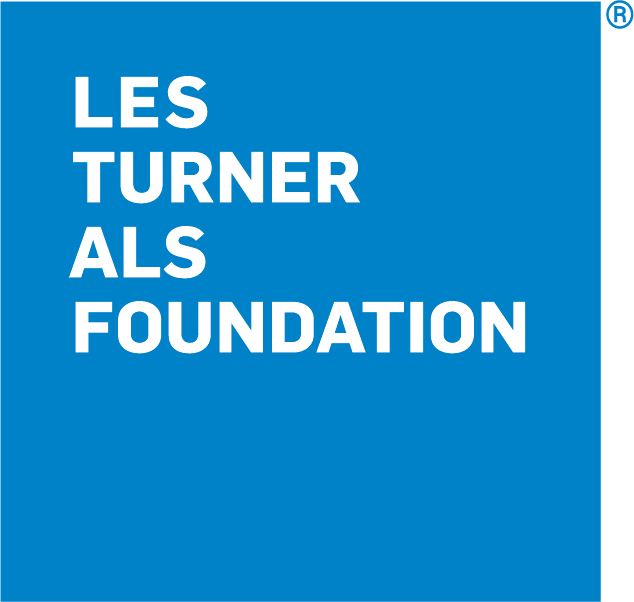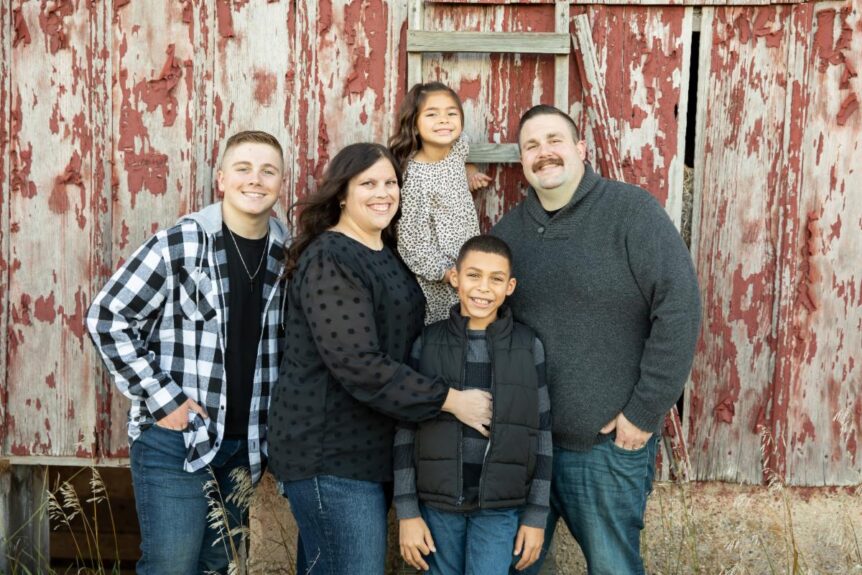Jessica Morris always knew there was a possibility that she might carry the SOD1-ALS gene and eventually get ALS, but she never dwelled on it, keeping busy with her three children – Aidan, Christopher and Mia.
In 2020, she began to notice symptoms.
“I got a really bad leg cramp in my right leg one day and my right calf muscle started twitching. I told some family members, and they thought that the symptoms might be in my head,” says Jessica. “In my extended family, which has had multiple family members diagnosed with ALS including my dad who passed over 30 years ago, we did not discuss ALS because we believed that by talking about ALS will bring on bad vibes.”
The cramp and twitching in her leg lasted for about two weeks, and then she was symptom free for two years. But in March 2022, Jessica began having issues walking. Initially, she wasn’t too alarmed, since she already walked with a bit of a limp from a car accident a few years earlier. However, a few days later, when she attempted to go up the stairs of her home, her left leg wouldn’t move.
“At that moment I felt instant terror, and I thought, that’s 100% ALS,” says Jessica. “My physician recommended that I go to the Lois Insolia Clinic at the Les Turner ALS Center at Northwestern Medicine. The thought of going there was a nightmare to me, because I knew that it would be the day that I would be told that I have ALS. I had dreaded that day my whole life.”
Jessica met with Senda Ajroud-Driss, MD, the clinic’s director. After genetic testing, she was diagnosed with SOD1-ALS in September.
“After my first appointment, I met Cara Gallagher, a support services coordinator from the Les Turner ALS Foundation,” says Jessica. “She was very personable, comforting and down to earth.

“I was then introduced to Rochelle Walwer, another support services coordinator, who has helped me get a grant for a folding power wheelchair. I was fortunate to be a part of the expanded access program for tofersen, a drug developed to treat people with the SOD1-ALS gene. For my first tofersen appointment Rochelle also met us on the way to the hospital. She really understands my need for independence. She treats me like a peer and not a patient.”
Jessica says that being part of the expanded access program for tofersen has given her hope. She added her experience and perspective to the recent FDA Advisory Committee meeting on tofersen.
“I can’t tell you how much this drug has helped me in maintaining a positive mindset,” she says.
Although Jessica’s children are all adopted, she says that the possibility of passing on the SOD1-ALS gene to her children had nothing to do with her decision to adopt. She has been open with them about ALS.
“Despite living with ALS, I am still a mom and I continue to spend a lot of time with my family,” says Jessica. “Christopher and Mia are involved with gymnastics, and Aidan is busy with football and track. As a family, we also have movie and game nights.
“What has changed for me is that I spend most of the day walking with a cane. When I have to walk a long distance, I use a wheelchair to conserve my energy. My husband also helps out more with the household chores and taking care of the children. Our whole house works together as a family should.”
Since her diagnosis, Jessica has maintained a positive attitude and continues to live life to the fullest.
“Following my ALS diagnosis, my aunt, who lost her husband to ALS, told me, ‘We didn’t live ALS’, meaning they didn’t let ALS control and take over their lives. I try to carry that with me every day. Am I going to miss something for my kids because I’m too proud to be in a wheelchair? No! I’m going to show up. I’m going to live my life,” says Jessica.
Listen to Jessica’s testimony at the FDA Advisory Committee on tofersen


